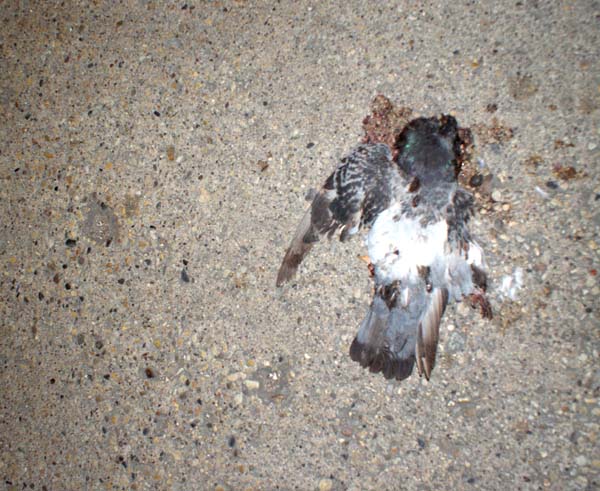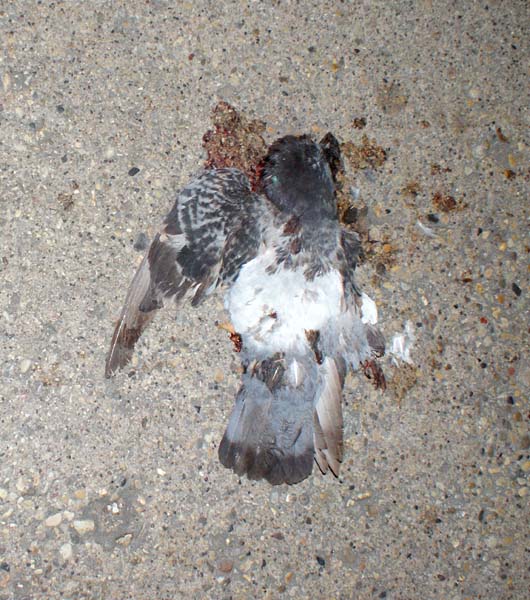|
Dusty Dog Reviews The whole project is hip, anti-academic, the poetry of reluctant grown-ups, picking noses in church. An enjoyable romp! Though also serious. |
|
Nick DiSpoldo, Small Press Review (on Children, Churches and Daddies, April 1997) Children, Churches and Daddies is eclectic, alive and is as contemporary as tomorrow’s news. |



|
Kenneth DiMaggio (on cc&d, April 2011) CC&D continues to have an edge with intelligence. It seems like a lot of poetry and small press publications are getting more conservative or just playing it too academically safe. Once in awhile I come across a self-advertized journal on the edge, but the problem is that some of the work just tries to shock you for the hell of it, and only ends up embarrassing you the reader. CC&D has a nice balance; [the] publication takes risks, but can thankfully take them without the juvenile attempt to shock. |
|
from Mike Brennan 12/07/11 I think you are one of the leaders in the indie presses right now and congrats on your dark greatness. |
Volume 242, the March/April 2013 issue
Internet ISSN 1555-1555, print ISSN 1068-5154
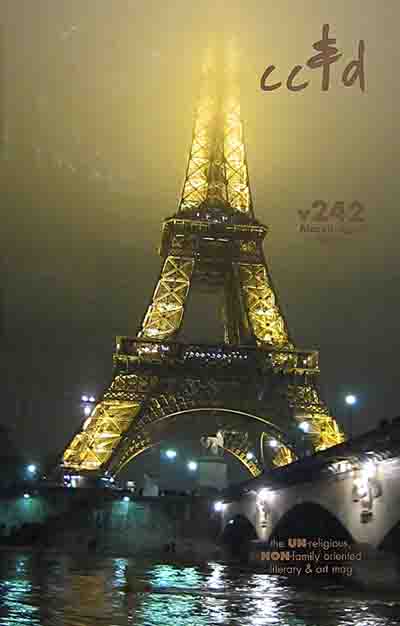
cover art by Eric Bonholtzer
see what’s in this issue...
Note that in the print edition of cc&d magazine, all artwork within the pages of the book appear in black and white.
|
Order this issue from our printer as a perfect-bound paperback book (5.5" x 8.5" w/ b&w interior pages) |

poetry
the passionate stuff
Let the dead bury the deadFritz Hamilton
Let the dead bury the dead/ all
frying at the end of a fishing pole/
skateboard champ to the grave/ drugs
the dead bury the dead/ it’s Sniff sniff . . . YUKS ... !
|
I fly up to the sun untilFritz Hamilton
I fly up to the sun until
my nose goes poof in fire.
My ears become my wings until
The eagle tears out my eyes &
do not join my insane laughter/ Baudelaire
I dive down
feces from the fish’s bottom
sea creatures surface dead beneath
eat them up UNTIL
DIE ...
!
|
My nose is an attack rifleFritz Hamilton
My nose is an attack rifle/ it
splattering the children & staff at
eradicating the nurses in Chicago with
gore from the All-American tit, & the
Silver Hearts of corruption awarded for
smile, America, smile & drink
splash in the Styx full SHAME ... !
|
GunsWilliam Robison
Hunter wants to be buried with his guns
illicit Uzi in his right hand
12 gauge broken down at his feet
he wants the coffin lid left unlocked
|
| Janet Kuypers reads the William Robinson poem Guns from cc&d magazine |

See YouTube video of Janet Kuypers reading this William Robinsonpoem in cc&d magazine live 4/24/13 at the Café Gallery poetry open mic she hosts in Chicago |
William Robison BioWilliam Robison teaches history at Southeastern Louisiana University and has published considerable nonfiction on early modern England, his most recent work being The Tudors in Film and Television (McFarland, 2012), co-authored with Sue Parrill. For more info, see http://www.tudorsonfilm.com. He is also a musician and a maker of short films, both which the curious can check out at http://www.myspace.com/562067730. Poetry is a newer form of expression for Robison, but recently hwe has had poems accepted by Amethyst Arsenic, amphibi.us, Anemone Sidecar, Apollo’s Lyre, Asinine Poetry, Carcinogenic Poetry, decomP magazinE, Forge, Mayday Magazine, On Spec, and Paddlefish.
|
Victim No MoreS. Progress
religion |
Eiffel Tower
CEE |
I don’t know someone in a military prisonCEE
But I’ll sure as shit make a stinky-shit stink
|
Report OverpostCEE
Post a video
|
Dinosaurs(anyway, who ever wanted toplay with the kid who liked his plastic dinosaurs best?) CEE
Dinosaurs had litta-bitty brains,
There.
If movies contain real research,
|
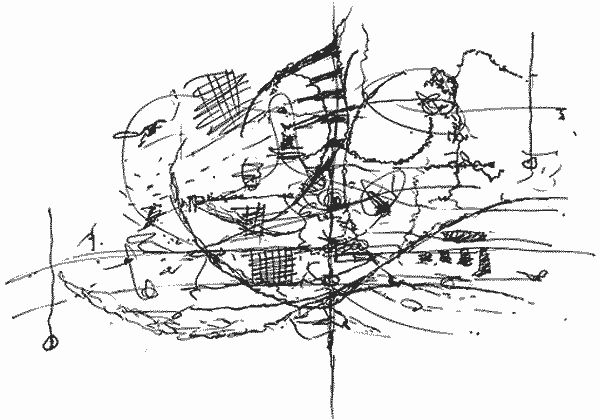
Flying Fish, drawing by the HA!Man of South Africa
The Nixon’s PoolCEE
I used to know their pool boy
I’m older, now I like Evil
|
Waste ManagementRyan Peeters
I never knew my neighbors, didn’t
from the third story apartment, just
As I sat outside smoking, the new
When they left, did they leave behind
|
Window Of My SoulDavid Michael Schmidt
face pressed firmly against the smooth cold window
there is always room for more
|

0087, image by Eric Bonholtzer
CraveDevon Sova
Thirty
Time has healed
I certainly am
|

Sundial, photography by Brian Hosey
david rockerfellers last day on earthJames T. Carr
david rockerfeller is dying
|
I Figured out How to Think ReglerScott Spradlin
Boss throwed and
And he said when he throwed them cases at me
I caught them cases and
Boss started in on talking, said
I said all right.
I thought of his face saying “oh no!” when his head smacked that froze floor
I never seen nothing like that but I’ve got me a good imagination
and I don’t think no more about what it was was bothering me so, Thinking regler
|
On What Constitutes a Human Rights ViolatorMichael Ceraolo
A dictator who always did so, |
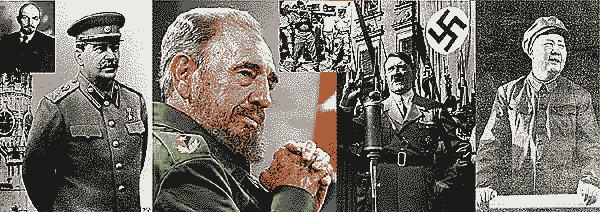
The Things You Feel
Richard King Perkins II |
Nursing Home New YearRichard King Perkins II
Human wheelbarrows, carts of dying meat
Above the stalled procession of rolling chairs
Somehow, our efforts have given more life
and that they were always above suspicion
|
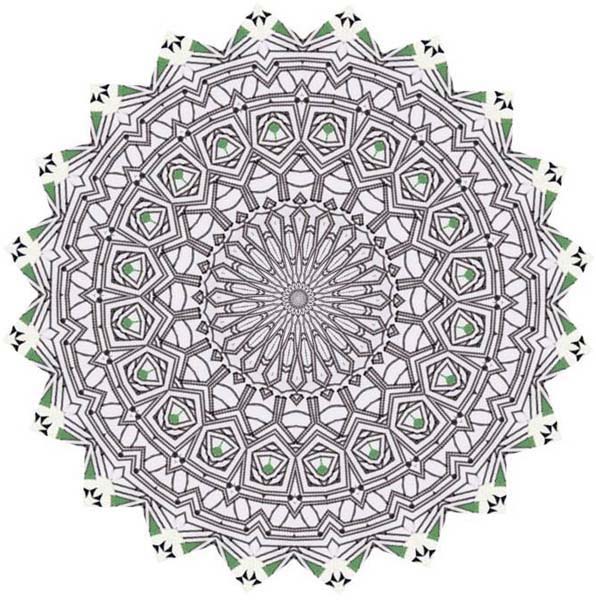
ART M 560 BEKK, art by Üzeyir Lokman ÇAYCI
In a Glass HouseOz Hardwick
Everything looks smaller inside
Books line walls, obscuring
to see their own reflections
The air smells familiar:
catching the light, you discover
|
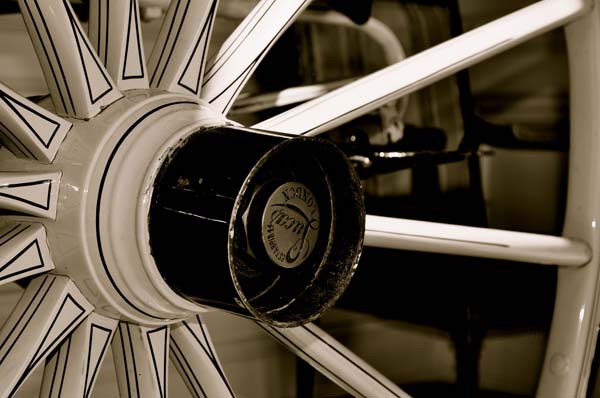
Lunewheel, image by Peter LaBerge
TorinoR.F. Jordan
the beautiful beast had just careened onto Zerega Avenue,
the boy knew it was Jesus because of how the man posed
|
Musings After A Good 3rd DateEric S.Would it be a deal breaker if I smoked? Would it be a deal breaker if I smoked 2 packs a day? Two packs an hour? If I was constantly smoking 3 cigarettes and I couldn’t hold your hand or kiss you because at any given time both of my hands and my mouth were filled with cigarettes? Is that something you could live with?
What if I grew a mustache? I know, when we met, I didn’t have a mustache but I really want a mustache. I really want a Fu Manchu mustache with the ends hanging off my lips like What if I’m actually an android? What if I take bath salts and then have nightmares about eating people’s faces? What if I take Prozac and then have trouble orgasming and sleeping?
What if I look happier than I am?
On our last date, I get kind of quiet over dinner. You ask if I’m ok.
But what if I get sadder than that? There are things I will try to hide from you until they burst out of me like a swarm of angry tapeworms But, at the risk of over sharing:
I am not an android
I will not blame you if you leave
|

Dissociate, photography by Rose E. Grier
Elegy for Avenue A (#2)Kenneth DiMaggio
“Bentham’s Panopticon is ...[a] place [for]
In a loft with windows tall
|
Evil came to Sandy HookMCD12/14/2012
Forty converts, maybe millions more,
let ruin and scoundrel speak no more
but I can no longer stand the pain
so be forewarned of this lament,
|
Winter on Civvy StreetCopyright R. N. Taber
Icicles, dangling from a roof
Icicles, starting to melt, old house
Icicles, smearing honest brickwork
Icicles, gone without leaving a trace
|
Asking Too MuchDan Fitzgerald
It is not hope
|
| Janet Kuypers reads the Dan Fitzgerald poem Asking Too Much from cc&d magazine |

See YouTube video of Janet Kuypers reading this Dan Fitzgerald poem in cc&d magazine live 5/22/13 at the Café Gallery poetry open mic she hosts in Chicago |

Zach, photography by John Yotko
Flicker
Brian Looney
Lightning makes
It is just
A mini-twinkle,
Lightning makes
Now they
Lightning makes
A tiny dewdrop
|

|
| Janet Kuypers reads the Brian Looney poem Flicker from cc&d magazine |

See YouTube video of Janet Kuypers reading the Brian Looney poem Flicker in cc&d magazine live 5/29/13 in Chicago at her the Café Gallery poetry open mic (S) |
How Ron Paul
Dana Stamps, II |
PreyMary Mac NeilHe looked down upon the innocent and decided he would prey... he took the life they knew and it would never be the same. they cried out to their Mothers and they cried out in vain. Those that heard their cries just turned their head away..... the child with all their innocence grew frightened and afraid spent years fighting demons in the darkness of the night. Then the child without his innocence grew up to be a man and they all came together and the fight began. When the day of judgement came and the sentence it was read with these laughing words it came one year less a day. the man who wore the cloth and caused them so much pain was sent away and protected once again. When his time was over and he was free to step outside he looked down upon the innocent and decided he would prey. then a gunshot rang out loud as rain came pouring down. then the child with all their innocence, went outside....to play....
This is for all the children who were abused by Priests in the catholic church
|
Vengeful PhoneJanet Kuypers7/20/12
I don’t have a smart phone.
|

See YouTube video of Kuypers reading this poem as if she were on the phone in her “overheard conversations” series 8/15/12 at the Café Gallery in Chicago (Canon) |

See YouTube video of Kuypers reading this poem as if she were on the phone in her “overheard conversations” series 8/15/12 at the Café Gallery in Chicago (Canon) |

See YouTube video of Kuypers reading many poems as if she were on the phone in “overheard conversations” 8/15/12 at the Café Gallery in Chicago (Canon) |

See YouTube video of Kuypers reading many poems as if she were on the phone in “overheard conversations” 8/15/12 at the Café Gallery in Chicago (Canon) |

See YouTube video of Kuypers’ open mike 8/15/12 at Gallery Cabaret’s the Café Gallery in Chicago, plus her poetry - including this piece |
Goblins on Top of the BusJanet Kuypers8/2/12
Saw a cardboard display
|
OccupyJanet Kuyperstwitter-length poem 8/25/12
I’m not occupying Wall Street.
|
Jet PuffedJanet Kuypers8/24/12
One of the things on sale
|
Pork SkinsJanet Kuyperstwitter-length poem 8/16/12
saw a point-of-purchase display
Great combination,
|
Y Chromosome MissingJanet Kuypers8/17/12
So this man comes
But please
I mean,
Yes,
I’m sorry.
|

See YouTube video of Kuypers reading this poem 9/12/12 at the Café Gallery in Chicago (Canon) |

See YouTube video of Kuypers reading this poem 9/12/12 at the Café Gallery in Chicago (Sony) |

See YouTube video of Kuypers’ “Grocery Store Stories” 9/12/12 at the Café Gallery in Chicago (with this poem; Canon) |

See YouTube video of Kuypers’ “Grocery Store Stories” 9/12/12 at the Café Gallery in Chicago (with this poem; Sony) |

See YouTube video of Kuypers’ open mic 9/12/12 at Gallery Cabaret’s the Café Gallery in Chicago, plus her poetry (including this poem) |
One of the CartsJanet Kuypers8/24/12
While working here
People actually leave
Just recently, two carts
|
Janet Kuypers Bio
Janet Kuypers has a Communications degree in News/Editorial Journalism (starting in computer science engineering studies) from the UIUC. She had the equivalent of a minor in photography and specialized in creative writing. A portrait photographer for years in the early 1990s, she was also an acquaintance rape workshop facilitator, and she started her publishing career as an editor of two literary magazines. Later she was an art director, webmaster and photographer for a few magazines for a publishing company in Chicago, and this Journalism major was even the final featured poetry performer of 15 poets with a 10 minute feature at the 2006 Society of Professional Journalism Expo’s Chicago Poetry Showcase. This certified minister was even the officiant of a wedding in 2006. |

prose
the meat and potatoes stuff
TrappedEric Burbridge
Lewis Maser dozed for a second; the front wheel of his mini-motor home hit the rubble strip. He snapped out of it, but still lost control of the newly purchased Winnebago ERA. It spun on the rain drenched desert highway. The air bags exploded in his face when the vehicle flipped and slammed into a ditch. He lost consciousness.
|
Hell’s Desert RoseMel WaldmanI see it in my darkest dreams, the desert rose dangling above the cliff that looms over the hot boiling seas below. I fear it is real and omnipotent. The desert rose is not a rose. Nestled in my frightening dreamscape, it is a surreal plant with fuchsia flowers. Or perhaps, beneath an oppressive sun, in an ancient ritual of black magic with dark alchemy, a giant tree transmogrifies into a shrunken, soul-cutting tree. When I gaze at the desert rose, it rushes across my quiet quintessence and steals my spirit. My dead black eyes travel to the other side of Hell. I see a dragon’s blood tree. It possesses the antidote to my life-threatening condition, a dark red sap. I must drink the cure. But of course, I can’t. The Devil and its voodoo curse won’t let me. Lost and soulless, like a zombie, I plunge into the seething seas below, vanishing in an ocean of oblivion. I sit on Hell’s cliff, a desert rose, opening its purplish-red flowers, hungry for your virgin eyes.
|
BIOMel Waldman, Ph. D.Dr. Mel Waldman is a licensed New York State psychologist and a candidate in Psychoanalysis at the Center for Modern Psychoanalytic Studies (CMPS). He is also a poet, writer, artist, and singer/songwriter. After 9/11, he wrote 4 songs, including “Our Song,” which addresses the tragedy. His stories have appeared in numerous literary reviews and commercial magazines including HAPPY, SWEET ANNIE PRESS, CHILDREN, CHURCHES AND DADDIES and DOWN IN THE DIRT (SCARS PUBLICATIONS), NEW THOUGHT JOURNAL, THE BROOKLYN LITERARY REVIEW, HARDBOILED, HARDBOILED DETECTIVE, DETECTIVE STORY MAGAZINE, ESPIONAGE, and THE SAINT. He is a past winner of the literary GRADIVA AWARD in Psychoanalysis and was nominated for a PUSHCART PRIZE in literature. Periodically, he has given poetry and prose readings and has appeared on national T.V. and cable T.V. He is a member of Mystery Writers of America, Private Eye Writers of America, American Mensa, Ltd., and the American Psychological Association. He is currently working on a mystery novel inspired by Freud’s case studies. Who Killed the Heartbreak Kid?, a mystery novel, was published by iUniverse in February 2006. It can be purchased at www.iuniverse.com/bookstore/, www.bn.com, at /www.amazon.com, and other online bookstores or through local bookstores. Recently, some of his poems have appeared online in THE JERUSALEM POST. Dark Soul of the Millennium, a collection of plays and poetry, was published by World Audience, Inc. in January 2007. It can be purchased at www.worldaudience.org, www.bn.com, at /www.amazon.com, and other online bookstores or through local bookstores. A 7-volume short story collection was published by World Audience, Inc. in June 2007 and can also be purchased online at the above-mentioned sites. |
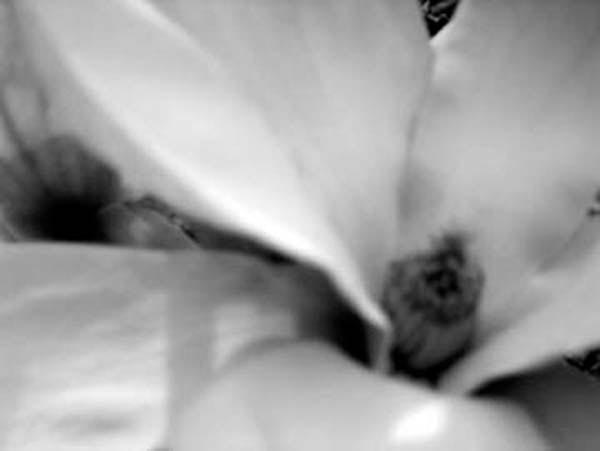
Magnolia Petals, art by Cheryl Townsend
Guilt by AssociationDon Maurer
“Yo! Anyone home?” Assistant Professor Larry Galinski announced his entrance to Professor Greg Johnson’s laboratory. Both men were faculty members in the Department of Civil and Environmental Engineering of The Pennsylvania State University.
“Look what came in the morning’s mail?” Warren said to his colleague Brad.
|
The Best RevengeJohn Ragusa
Rusty Brull drove into the restaurant’s parking lot and found a space, which he took. Then he got out of his car and entered the restaurant.
A half-hour later, she brought Brull his food. Then she waited on another table occupied by a middle-aged couple, who were bickering loudly.
“Do I have to fire this gun to make you quiet?”
|
The Lucky MoustacheJohn Ragusa
Carlos Sinatra was a habitual gambler. He liked to play the roulette wheel and the slot machine at casinos. He would win money occasionally, but mostly he lost cash. This did not stop him from gambling every weekend.
|
The Jumping BridgeDoug Downie
A very long time ago I used to jump from high places into small spaces. From the top of a cliff into that dark area of the lake that rumour had told us was deep, and safe. We could let all our fears out in that one magical leap from a perch on top of a sandstone ledge or the edge of an old iron bridge that spanned a narrow gorge.
The day was spent in anticipation. There was the gathering of firewood, and the setting up of camp tables, and the drinking of beer, and the telling of old stories, and the odd jabbing and prodding and taunting that seems to go with the union of men without women. But we did feel good with each other. We did not doubt that this was a good time.
It was around noon when we left for the 6 hour drive south. All the gear had been packed away by the three guys who actually knew how to do it; then we’d piled into the van, in a reversal of the way we’d piled out. We clanked across the bridge, and turned right on the river road. I was riding shotgun. Fred was driving and he slid in a Jimi Hendrix cassette. I was a little surprised but pleased at the same time.
|

Fremont Canal, painting by Brian Forrest
What Emil SaidMichael C. Keith
“Don’t you hate the way your thing gets all hard and sticks out? You can’t control it. Does it on its own. It just happens. All of a sudden you got this lump in your pants. Stays that way until you do sex with it,” said Derek.
Father Larimer was a round, bald-headed man in his late fifties who perspired no matter what the temperature was. Because of this he always clutched a rag to wipe his sweat-dappled forehead. Tim had seen sweat drop from his head into the gold chalice containing the Holy Eucharist. Does that ruin the hosts? he had wondered. Maybe they’re not the body of Christ anymore.
Derek and Tim left the rectory and began their walk home, still feeling somewhat buzzed by the wine.
|

a Crooked Mile, art by Edward Michael O’Durr Supranowicz
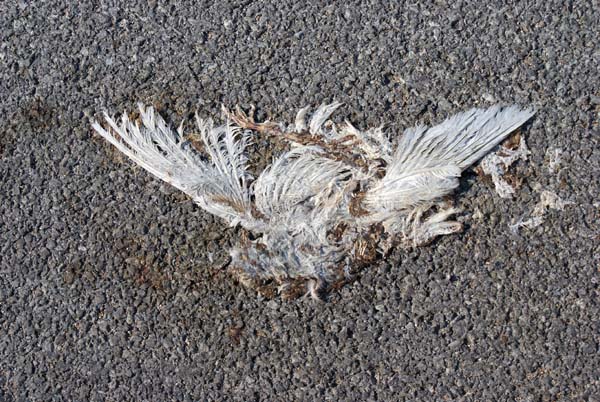
Falling from TreesMichael C. Keith
BB guns reached their peak of popularity in the 1950s. They were nearly every boy’s ultimate dream gift in the years that followed the war. A Daisy Golden Eagle was the foremost object of desire by legions of youngsters, and Kelly Tuttle was among them. He had asked––pleaded––for one since he was seven, but it wasn’t until he turned twelve that his parents gave in to his request.
“Hi Yo Silver!” shouted Kelly, holding his Daisy rifle high above his head in the middle of his backyard.
Nothing about the shootings was said the next day, and Kelly went to school still wondering how his dead prey had appeared out of nowhere. Despite the inexplicable placement of the dead bird, Kelly felt little remorse over his deed. But he was spooked and genuinely perplexed by what had occurred afterwards. When he reached home, his mother greeted him cheerfully, asking him if he’d like a snack. Kelly declined the offer and went to his room eager to play with his BB gun. Better not shoot any more birds for a while, he told himself. When he reached for his Daisy in the closet, his hand struck something unusual.
“What do you mean you don’t want it?” asked his father, slyly.
|
About Michael C. KeithMichael C. Keith is the author of several story collections. www.michaelckeith.com. |
The MechanicBob Strother
The window of Sherry Anne’s third-floor bedroom looked out on a wide concrete apron that stretched from the manicured grounds of the back yard to the garage. Hangar was more like it. The square footage of the garage was larger than the house she’d grown up in and boasted half a dozen retractable garage doors across the front. Her husband, Palmer, paced back and forth on the apron, gesticulating wildly while the Latino mechanic he’d hired six months ago stood quietly by. Sherry Anne couldn’t hear her husband’s words through the window but she could guess their nature by his obvious agitation; she’d suffered similar tirades all too often herself.
A shaft of afternoon sunlight bathed the bedroom in a soft yellow glow. Sparkling dust motes drifted languidly across Sherry Anne’s field of vision. It was funny, she thought: two weeks ago she’d been snared in a web of her own making—bound to a loveless marriage, but unwilling to part with the trappings of opulence she’d grown accustomed to. Now she was both wealthy and free.
|

After a Hard Day, art by David Michael Jackson
At Little Chicago LakeCarol SmallwoodExcerpt from Lily’s Odyssey, a novel, published with permission by All Things That Matter Press; its first chapter a Short List Finalist for the Eric Hoffer Award for Best New Writing
It must have been the tables for the luncheon that brought back memories of tables filled with people on Little Chicago Lake: I smelled the hot tar of summer, the satisfying plop of belly smackers off the dock. The lake had gotten its name because it was people from Chicago who’d built summer homes when the Manitowoc & Nicolet Railroad skirted the lake in the late 1800’s.
|
About Carol SmallwoodCarol Smallwood co-edited Women on Poetry: Writing, Revising, Publishing and Teaching (McFarland, 2012) on the list of “Best Books for Writers” by Poets & Writers Magazine; Women Writing on Family: Tips on Writing, Teaching and Publishing (Key Publishing House, 2012); Compartments: Poems on Nature, Femininity, and Other Realms (Anaphora Literary Press, 2011) received a Pushcart nomination. Carol has founded, supports humane societies.
|
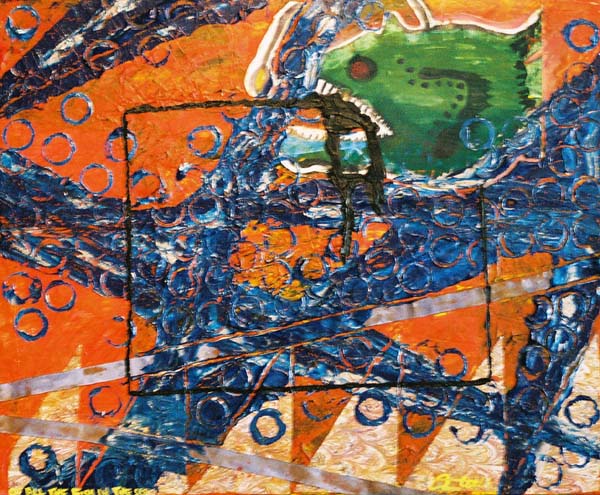
Of All the Fish in the Sea, painting by Aaron Wilder
Please Come Home, All Is ForgivenBob Johnston
I really shouldn’t complain too much. It was an easy life. I slept most of the time, sometimes straight through the day if nobody bothered me. I was fed whenever I was hungry, and my only duties were to strut around and purr once in a while and act grateful.
|
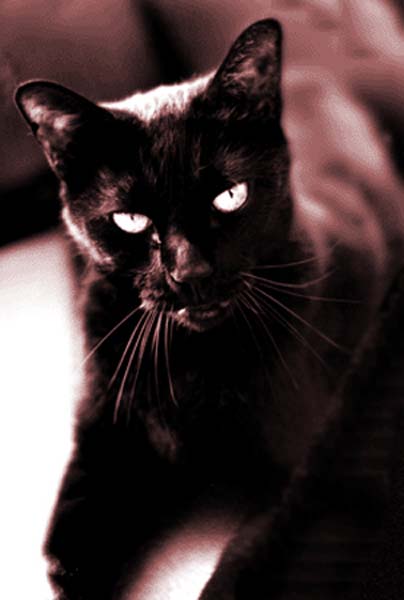
DisbeliefGregory Liffick
Being unable to move, to speak, or to show any expression, it bothered Phil that no one knew exactly how foul tempered he really was. Everyone assumed that inside of his static, mute exterior lived a saint. That is, if they believed he had any personality at all. But, Phil wasn’t a saint. And he wasn’t inclined to be one.
|
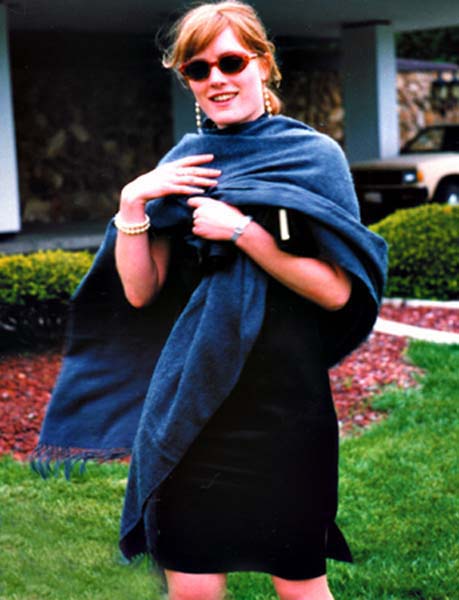
AidanMarilyn June Janson
Curled up in bed, a woman turns on her laptop computer. Booting up she clicks on her email program and keys in lacydex@sox.com.
 ***
The next day.
The next day. Evening.
Aidan’s apartment. Late evening.
Same evening. One hour later.
|
AnimalsPatrick N. Cole
The car swept sharply around a corner and the four young men inside braced tight against their seats until it was over. They didn’t relax, however, for a foul pulse ruminated amongst them. Doom hung over their heads and clouded their minds as they raced down the highway into town. Maybe it was the music they had been listening to: lyrics filled with violence and anger, more than just general teen angst. Perhaps they had a bad day at school on this particular Friday, or the fact they were all into weightlifting and felt strong and proud and wanted to display it. One of them broke the silence and yelled “I want to beat the shit out of someone!”
|

Strange Passage, art by Rex Bromfield

Debra Purdy Kong, writer, British Columbia, Canada I like the magazine a lot. I like the spacious lay-out and the different coloured pages and the variety of writer’s styles. Too many literary magazines read as if everyone graduated from the same course. We need to collect more voices like these and send them everywhere.
Children, Churches and Daddies. It speaks for itself. Write to Scars Publications to submit poetry, prose and artwork to Children, Churches and Daddies literary magazine, or to inquire about having your own chapbook, and maybe a few reviews like these.
what is veganism? A vegan (VEE-gun) is someone who does not consume any animal products. While vegetarians avoid flesh foods, vegans don’t consume dairy or egg products, as well as animal products in clothing and other sources. why veganism? This cruelty-free lifestyle provides many benefits, to animals, the environment and to ourselves. The meat and dairy industry abuses billions of animals. Animal agriculture takes an enormous toll on the land. Consumtion of animal products has been linked to heart disease, colon and breast cancer, osteoporosis, diabetes and a host of other conditions. so what is vegan action?
We can succeed in shifting agriculture away from factory farming, saving millions, or even billions of chickens, cows, pigs, sheep turkeys and other animals from cruelty. A vegan, cruelty-free lifestyle may be the most important step a person can take towards creatin a more just and compassionate society. Contact us for membership information, t-shirt sales or donations.
vegan action
Children, Churches and Daddies no longer distributes free contributor’s copies of issues. In order to receive issues of Children, Churches and Daddies, contact Janet Kuypers at the cc&d e-mail addres. Free electronic subscriptions are available via email. All you need to do is email ccandd@scars.tv... and ask to be added to the free cc+d electronic subscription mailing list. And you can still see issues every month at the Children, Churches and Daddies website, located at http://scars.tv
MIT Vegetarian Support Group (VSG)
functions: We also have a discussion group for all issues related to vegetarianism, which currently has about 150 members, many of whom are outside the Boston area. The group is focusing more toward outreach and evolving from what it has been in years past. We welcome new members, as well as the opportunity to inform people about the benefits of vegetarianism, to our health, the environment, animal welfare, and a variety of other issues.
Dusty Dog Reviews: These poems document a very complicated internal response to the feminine side of social existence. And as the book proceeds the poems become increasingly psychologically complex and, ultimately, fascinating and genuinely rewarding.
Dusty Dog Reviews: She opens with a poem of her own devising, which has that wintry atmosphere demonstrated in the movie version of Boris Pasternak’s Doctor Zhivago. The atmosphere of wintry white and cold, gloriously murderous cold, stark raging cold, numbing and brutalizing cold, appears almost as a character who announces to his audience, “Wisdom occurs only after a laboriously magnificent disappointment.” Alas, that our Dusty Dog for mat cannot do justice to Ms. Kuypers’ very personal layering of her poem across the page.
Fithian Press, Santa Barbara, CA Indeed, there’s a healthy balance here between wit and dark vision, romance and reality, just as there’s a good balance between words and graphics. The work shows brave self-exploration, and serves as a reminder of mortality and the fragile beauty of friendship.
Mark Blickley, writer You Have to be Published to be Appreciated. Do you want to be heard? Contact Children, Churches and Daddies about book or chapbook publishing. These reviews can be yours. Scars Publications, attention J. Kuypers. We’re only an e-mail away. Write to us.
The Center for Renewable Energy and Sustainable Technology The Solar Energy Research & Education Foundation (SEREF), a non-profit organization based in Washington, D.C., established on Earth Day 1993 the Center for Renewable Energy and Sustainable Technology (CREST) as its central project. CREST’s three principal projects are to provide: * on-site training and education workshops on the sustainable development interconnections of energy, economics and environment; * on-line distance learning/training resources on CREST’s SOLSTICE computer, available from 144 countries through email and the Internet; * on-disc training and educational resources through the use of interactive multimedia applications on CD-ROM computer discs - showcasing current achievements and future opportunities in sustainable energy development. The CREST staff also does “on the road” presentations, demonstrations, and workshops showcasing its activities and available resources. For More Information Please Contact: Deborah Anderson dja@crest.org or (202) 289-0061
Dorrance Publishing Co., Pittsburgh, PA want a review like this? contact scars about getting your own book published.
 The magazine Children Churches and Daddies is Copyright © 1993 through 2013 Scars Publications and Design. The rights of the individual pieces remain with the authors. No material may be reprinted without express permission from the author. 
Okay, nilla wafer. Listen up and listen good. How to save your life. Submit, or I’ll have to kill you.
Dorrance Publishing Co., Pittsburgh, PA: “Hope Chest in the Attic” captures the complexity of human nature and reveals startling yet profound discernments about the travesties that surge through the course of life. This collection of poetry, prose and artwork reflects sensitivity toward feminist issues concerning abuse, sexism and equality. It also probes the emotional torrent that people may experience as a reaction to the delicate topics of death, love and family. “Chain Smoking” depicts the emotional distress that afflicted a friend while he struggled to clarify his sexual ambiguity. Not only does this thought-provoking profile address the plight that homosexuals face in a homophobic society, it also characterizes the essence of friendship. “The room of the rape” is a passionate representation of the suffering rape victims experience. Vivid descriptions, rich symbolism, and candid expressions paint a shocking portrait of victory over the gripping fear that consumes the soul after a painful exploitation.
Dusty Dog Reviews (on Without You): She open with a poem of her own devising, which has that wintry atmosphere demonstrated in the movie version of Boris Pasternak’s Doctor Zhivago. The atmosphere of wintry white and cold, gloriously murderous cold, stark raging cold, numbing and brutalizing cold, appears almost as a character who announces to his audience, “Wisdom occurs only after a laboriously magnificent disappointment.” Alas, that our Dusty Dog for mat cannot do justice to Ms. Kuypers’ very personal layering of her poem across the page.
|
